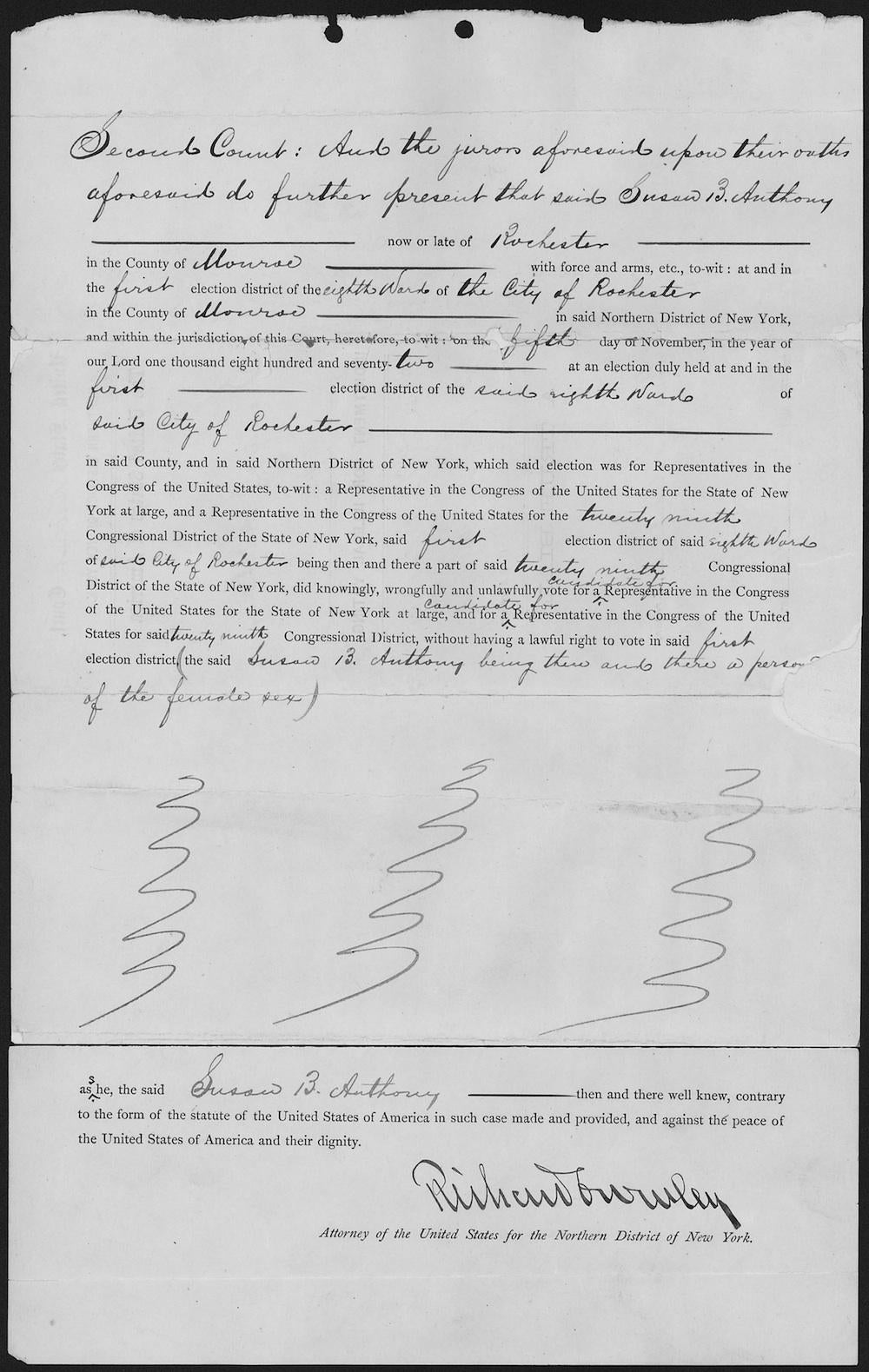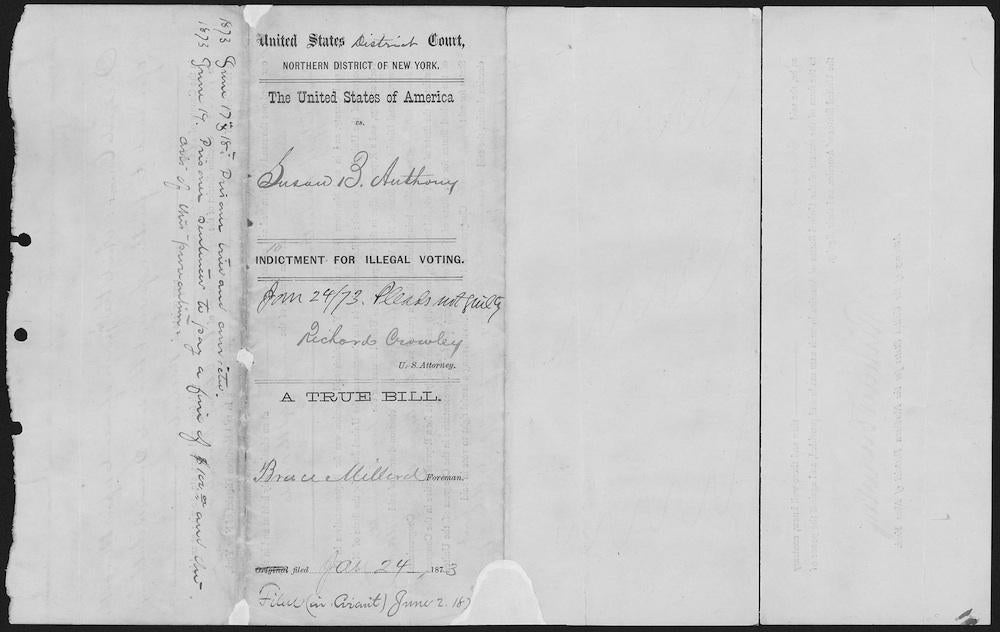The Vault is Slate’s history blog. Like us on Facebook, follow us on Twitter @slatevault, and find us on Tumblr. Find out more about what this space is all about here.
On Nov. 1, 1872, Susan B. Anthony convinced officials in Rochester, N.Y., to allow her to register to vote, arguing down their objections and threatening to sue them if they refused. Anthony cast a vote in the Nov. 5 election, selecting the straight Republican ticket, headed by Ulysses S. Grant.
This is the indictment Anthony was served the next January, in which a grand jury charged her with knowingly voting “without having a lawful right to vote … the said Susan B. Anthony being then and there a person of the female sex.”
Anthony’s argument was a legal one as well as an ethical one. Her defense rested on her interpretation of Section 1 of the new 14th Amendment (“all persons born and naturalized in the United States, and subject to the jurisdiction thereof, are citizens of the United States …”) Anthony thought that the “privileges of citizenship” extended to all citizens should naturally include voting, especially as the sex of the citizen wasn’t explicitly mentioned in either the amendment or the New York State Constitution.
At the trial, law professor Doug Linder writes, Judge Ward Hunt seemed to have prepared his opinion before any of the testimony began. Anthony did speak at the end of the trial, after Judge Hunt instructed the jury to convict without allowing them to deliberate. Hunt told Anthony that she had been tried “according to the established forms of law.” Aligning her cause with the recent fight against slavery, Anthony argued:
Yesterday, the same man made forms of law, declared it a crime punishable with $1,000 fine and six months imprisonment, for you, or me, or you of us, to give a cup of cold water, a crust of bread, or a night’s shelter to a panting fugitive as he was tracking his way to Canada. And every man or woman in whose veins coursed a drop of human sympathy violated that wicked law, reckless of consequences, and was justified in so doing. As then, the slaves who got their freedom must take it over, or under, or through the unjust forms of law, precisely so, now, must women, to get their right to a voice in this government, take it; and I have taken mine, and mean to take it at every possible opportunity.
Hunt fined Anthony $100, to which she protested “I will never pay a dollar of your unjust penalty.” The state found no assets to seize, and the fine was never paid.

National Archives.

National Archives.